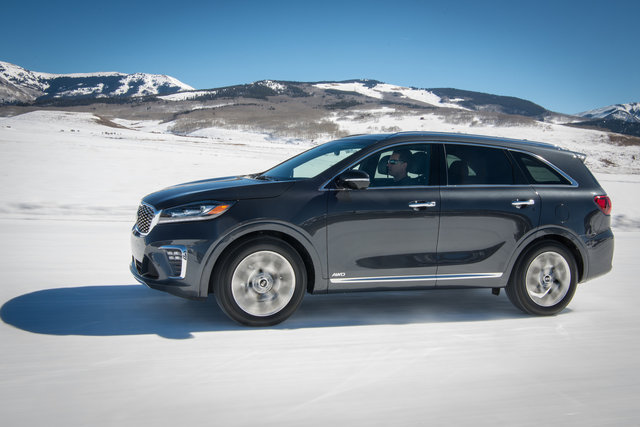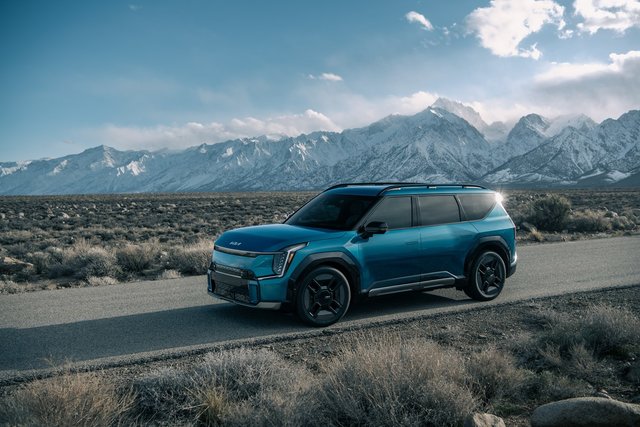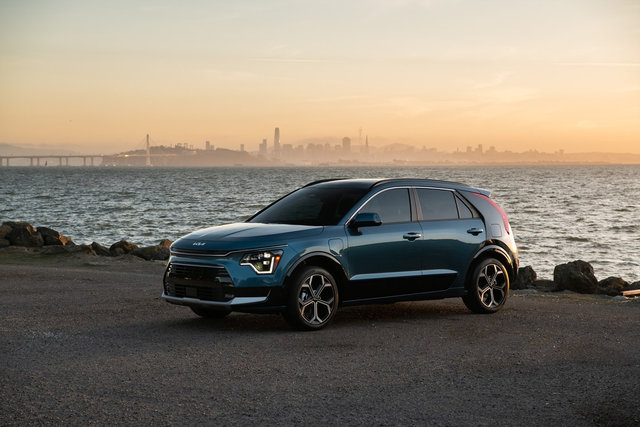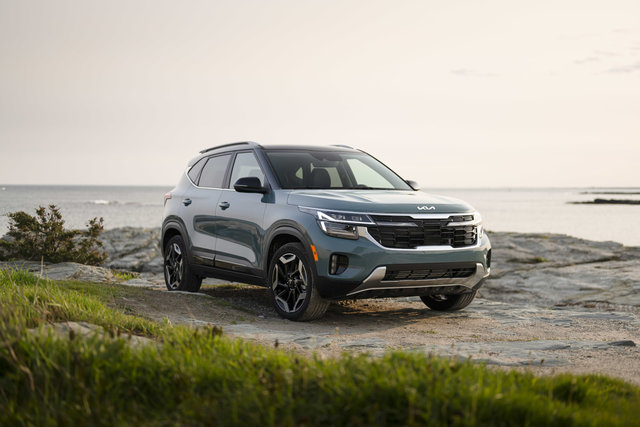The electric vehicle market expands daily, and the 2025 Kia EV9 leads this transformation by establishing new benchmarks for what drivers should expect from an electric SUV. This three-row electric SUV delivers real-world utility while incorporating advanced technology that improves your daily driving experience. Here's what makes this vehicle stand out. Exceptional Range and Charging The 2025...

As the worst winter months are approaching and temperatures drop even lower, it’s important to stay mindful of your car’s fuel efficiency. The colder the temperature gets, the more your car has to work to keep you warm and the more fuel it uses up. There are a few simple steps you can take in order to keep your Kia running efficiently during this chilly time of year. Let’s go over some tips on how to improve your Kia's fuel efficiency this winter.
Proper Tire Pressure
One of the main ways to improve fuel efficiency is by ensuring that your tires have optimal pressure. Low tire pressure increases friction between the tires and the road surface, resulting in poor gas mileage. Make sure that all your tires have the correct inflation pressure listed in your owner’s manual or on a sticker inside the driver's door frame. You should also check for wear and tear on each tire; if the tread depth is low, it can reduce traction on wet roads, causing decreased fuel efficiency as well as a safety risk when driving.
Check Your Oil
Keeping up with regular oil changes will help make sure that your engine isn't working too hard during cold weather starts. If you don't know when you last changed your oil, now is a good time to check and see if an oil change is due. It's also important to make sure you use the right grade of oil specified by the manufacturer; using heavier grades won't necessarily increase protection or performance, but it will reduce fuel economy due to increased engine drag.
Change Your Air Filter
Replacing a dirty air filter with a clean one can also help improve fuel economy by allowing more air into the engine than before. When air filters get clogged with dirt and dust, they become less effective at filtering out impurities from entering your engine, which can create extra strain on its components and lead to reduced gas mileage overall. Additionally, an old air filter can cause increased exhaust emissions, which is not only bad for our environment but bad for our pocketbooks, too, since we'll be paying more money at the pump over time!
Fuel efficiency isn't something most people think about until their wallet takes a hit at the pump—but it doesn't have to be that way! Taking small steps like properly inflating tires, changing out old oil filters, and swapping out air filters every once in a while can add up over time and save you money in both gas costs and maintenance fees down the line. By following these easy tips this winter season, you'll be able to enjoy improved fuel economy while staying safe on icy roads!
Other Articles That May Interest You
The 2025 Kia Niro PHEV offers the perfect balance for drivers who want electric efficiency without range limitations. With 55 km of all-electric range for daily driving and a gasoline engine ready for longer journeys, the Niro PHEV delivers exceptional versatility in one stylish package. Two Powertrains, One Seamless Experience The Niro PHEV combines a 1.6L GDI engine with a permanent magnet...
The 2025 Kia Seltos brings premium technology typically found in luxury vehicles to the compact SUV segment. From intuitive displays to smart connectivity options, the Seltos keeps you connected and in control while on the road. This tech-forward approach transforms everyday driving into a more convenient, comfortable, and safer experience without the premium price tag. With advanced features...






